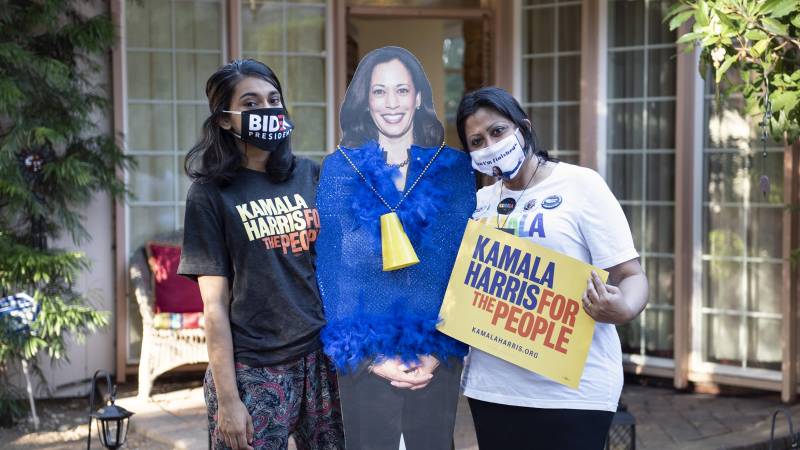When presidential candidate Joe Biden announced California Sen. Kamala Harris as his vice presidential pick, there was an outpouring of support from many Indian Americans who pledged their votes and dollars to the campaign. But since the news broke, Indian Americans have been having complicated discussions about Harris’ identity.
Many Indian Americans tend to lean left and vote for Democratic candidates, says AAPI Data founder and director Karthick Ramakrishnan. He says almost 68% of Indian Americans favor Joe Biden. Now that Harris, who was born in California to an Indian mother and Jamaican father, is on the Democratic ticket, he believes that support will only get stronger.
“We’re probably going to see a lot of movement among Indian American donors increasing their support for the Democratic ticket,” Ramakrishnan said.
His research shows that Santa Clara County has the highest population of Indian Americans in the United States. Because of that, he believes a lot of money will flow from the county to the Biden-Harris campaign.
But apart from their financial support, some Indian Americans have mixed feelings about Kamala Harris. Ramakrishnan says some members of the Indian American community were skeptical about how much she talked about her Indian heritage during the presidential campaign.

